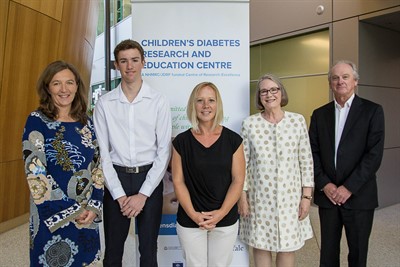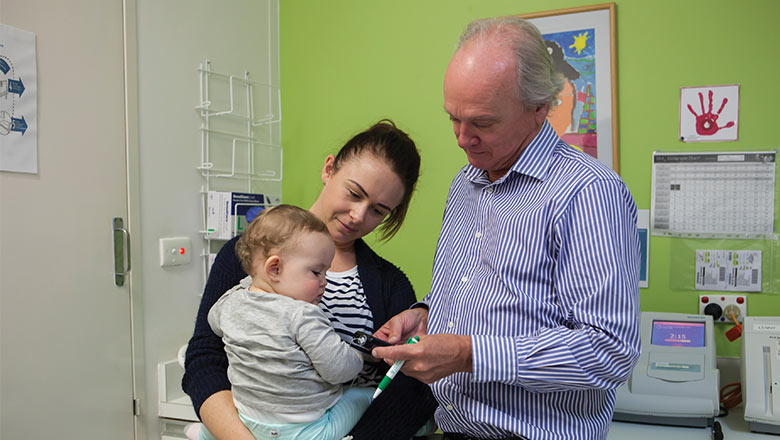Search
Research
Management of type 2 diabetes in young adults aged 18–30 years: ADS/ADEA/APEG consensus statementType 2 diabetes in young adults (nominally, 18–30 years of age) is a more aggressive condition than that seen in older age, with a greater risk of major morbidity and early mortality. This first Australian consensus statement on the management of type 2 diabetes in young adults considers areas where existing type 2 diabetes guidance, directed mainly towards older adults, may not be appropriate or relevant for the young adult population.
Research
Trends and burden of diabetes in pregnancy among Aboriginal and non-Aboriginal mothers in Western Australia, 1998-2015Diabetes in pregnancy (DIP), which includes pre-gestational and gestational diabetes, is more prevalent among Aboriginal women. DIP and its adverse neonatal outcomes are associated with diabetes and cardiovascular disease in the offspring.
Research
Women with type 1 diabetes exhibit a progressive increase in gut Saccharomyces cerevisiae in pregnancy associated with evidence of gut inflammationStudies of the gut microbiome have focused on its bacterial composition. We aimed to characterize the gut fungal microbiome (mycobiome) across pregnancy in women with and without type 1 diabetes.
Research
Utilisation, access and recommendations regarding technologies for people living with type 1 diabetes: consensus statement of the ADS/ADEA/APEG/ADIPS Working GroupType 1 diabetes presents significant challenges for optimal management. Despite intensive glycaemic control being the standard of care for several decades, glycaemic targets are infrequently achieved and the burden of complications remains high. Therefore, the advancement of diabetes management technologies has a major role in reducing the clinical and economic impact of the disease on people living with type 1 diabetes and on health care systems.
Research
The effect of oral insulin on subcutaneous insulin requirements and glycaemia in T1DMLiz Tim Davis Jones MBBS FRACP PhD MBBS DCH FRACP MD Co-director of Children’s Diabetes Centre Co-head, Diabetes and Obesity Research Co-director of
Research
Using continuous glucose monitoring to detect early dysglycaemia in children participating in the ENDIA study (Sub Protocol)Aveni Liz Haynes Davis BA (Hons), MBBChir, MA (Cantab), PhD MBBS FRACP PhD Principal Research Fellow Co-director of Children’s Diabetes Centre

News & Events
What life is like living with type 1 diabetesEvery decision a child with type 1 diabetes makes can impact on their blood glucose levels.

News & Events
Major focus for children’s diabetes research in WALaunch of the WA Children's Diabetes Research and Education Centre for Research Excellence (CRE) on the eve of World Diabetes Day.
News & Events
Environmental factors could trigger rise in type 1 diabetesNew research from Perth's Telethon Institute for Child Health Research has revealed an unexpected pattern in the rate and incidence of type 1 diabetes

News & Events
Improving the lives of kids with Type 1 DiabetesDiabetes research got a huge boost when the WA Children’s Diabetes Research and Education Centre for Research Excellence opened late last year.
